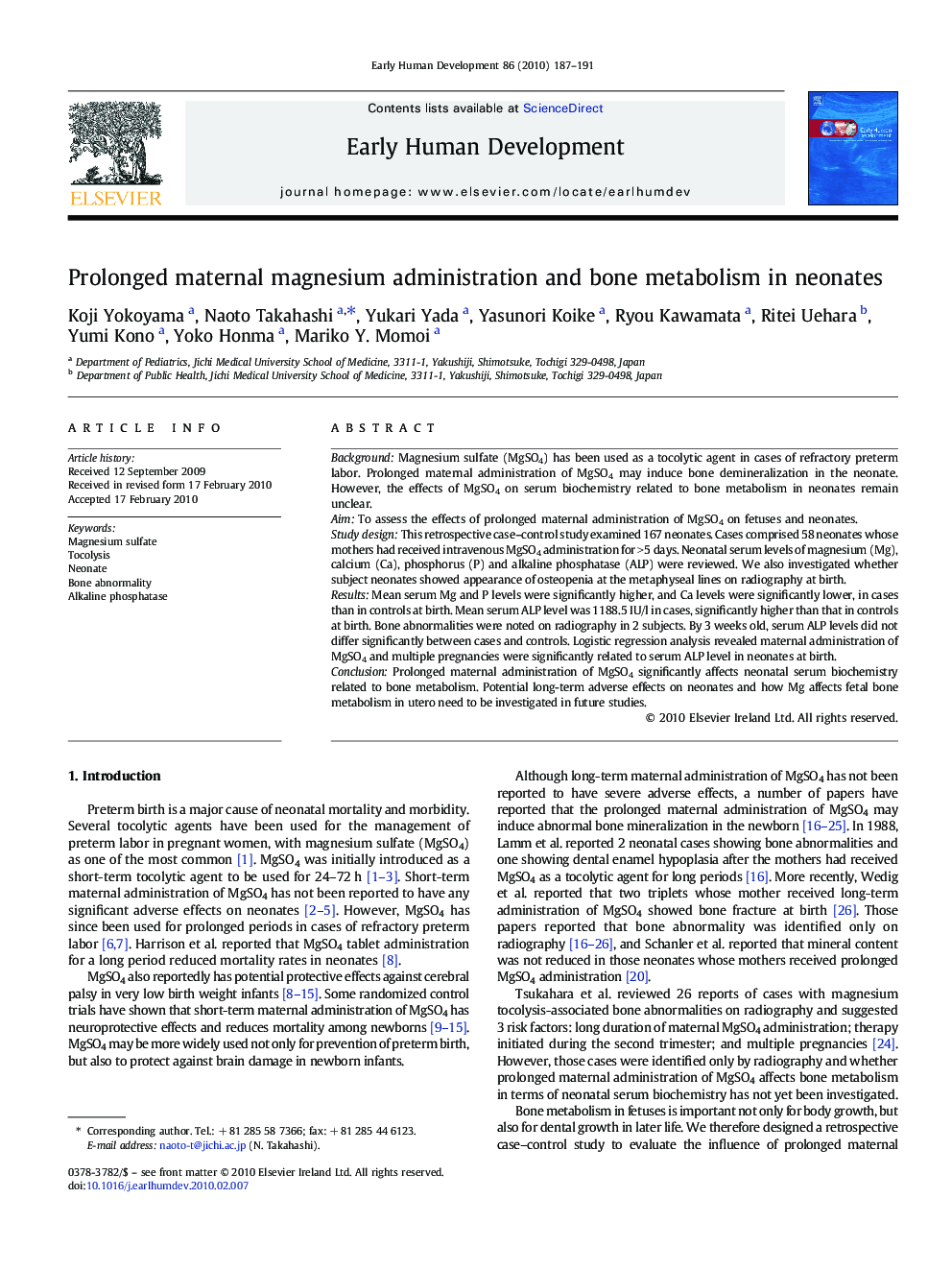| Article ID | Journal | Published Year | Pages | File Type |
|---|---|---|---|---|
| 3917648 | Early Human Development | 2010 | 5 Pages |
BackgroundMagnesium sulfate (MgSO4) has been used as a tocolytic agent in cases of refractory preterm labor. Prolonged maternal administration of MgSO4 may induce bone demineralization in the neonate. However, the effects of MgSO4 on serum biochemistry related to bone metabolism in neonates remain unclear.AimTo assess the effects of prolonged maternal administration of MgSO4 on fetuses and neonates.Study designThis retrospective case–control study examined 167 neonates. Cases comprised 58 neonates whose mothers had received intravenous MgSO4 administration for >5 days. Neonatal serum levels of magnesium (Mg), calcium (Ca), phosphorus (P) and alkaline phosphatase (ALP) were reviewed. We also investigated whether subject neonates showed appearance of osteopenia at the metaphyseal lines on radiography at birth.ResultsMean serum Mg and P levels were significantly higher, and Ca levels were significantly lower, in cases than in controls at birth. Mean serum ALP level was 1188.5 IU/l in cases, significantly higher than that in controls at birth. Bone abnormalities were noted on radiography in 2 subjects. By 3 weeks old, serum ALP levels did not differ significantly between cases and controls. Logistic regression analysis revealed maternal administration of MgSO4 and multiple pregnancies were significantly related to serum ALP level in neonates at birth.ConclusionProlonged maternal administration of MgSO4 significantly affects neonatal serum biochemistry related to bone metabolism. Potential long-term adverse effects on neonates and how Mg affects fetal bone metabolism in utero need to be investigated in future studies.
